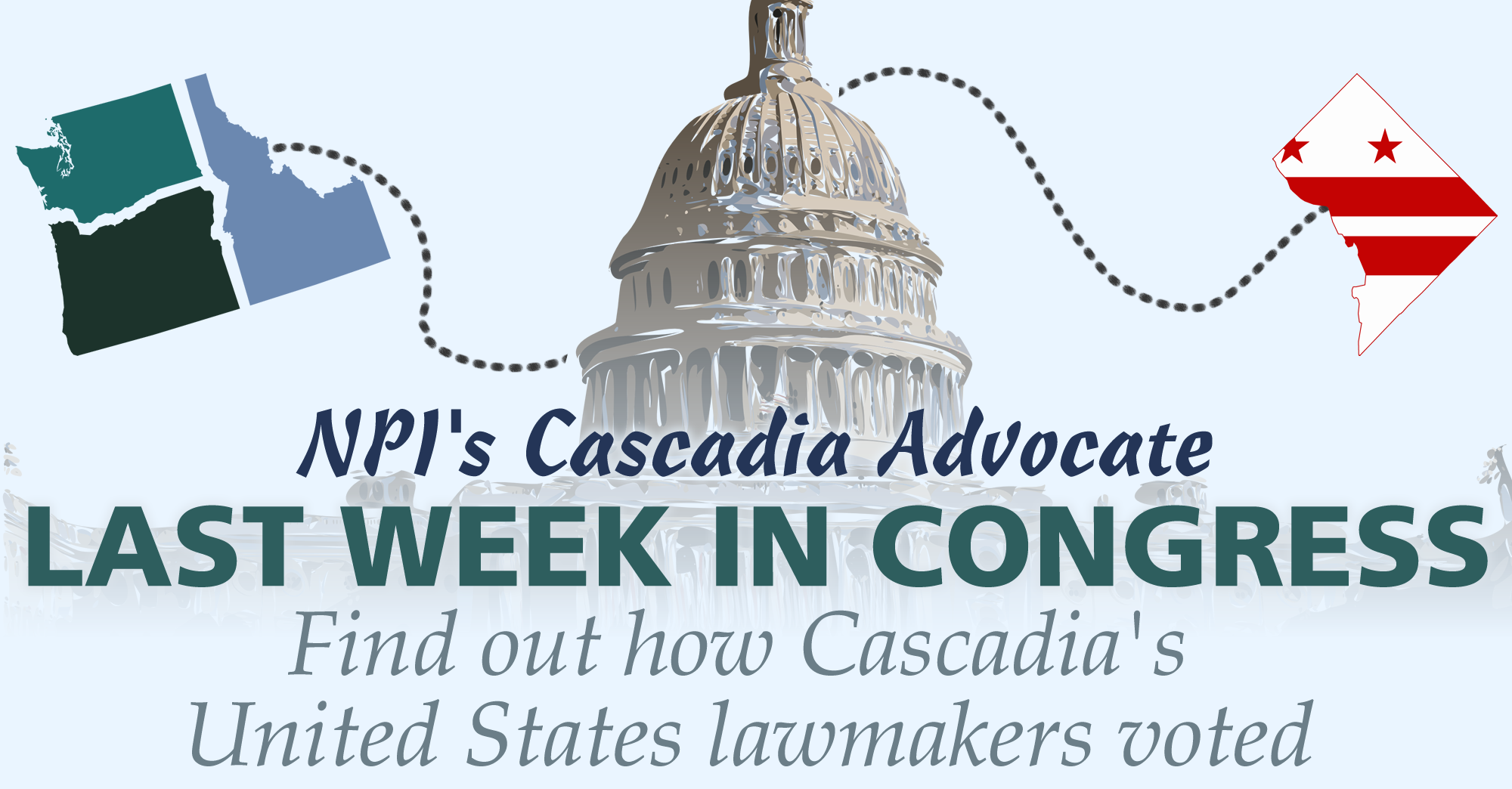Good morning! Here’s how Cascadia’s United States Senators voted on major issues during the legislative week ending Friday, June 19th, 2020.
The House was in recess.
In the United States Senate

REPAIRING NATIONAL PARKS, FUNDING PUBLIC LANDS: Voting 73 for and 25 against, the Senate on June 17th passed a bill (H.R. 1957) that would authorize $9.5 billion over five years for repairing facilities at the National Park Service, other federal land agencies and Indian Education Service schools.
In addition, the bill would permanently require an annual budget of at least $900 million for the Land and Water Conservation Fund, which provides federal and non-federal agencies with revenue for acquiring undeveloped land for conservation and recreational purposes.
All funding in the bill would come from royalties from oil and gas drilling operations on federal property. The bill would set aside about $6.5 billion over five years for long-neglected repairs at scores of national parks and related properties, generating tens of thousands of private-sector jobs and halving the park service’s $12.5 billion backlog of unfunded maintenance.
Steve Daines, R‑Montana, one of the bill’s Republican supporters, said: “Today, for the first time ever in the U.S. Senate, we will vote to make funding for a critical conservation program, the Land and Water Conservation Fund, full and mandatory. This funding will protect the program and provide certainty for our land managers, for conservationists, for sports men and women.”
Bill Cassidy, R‑Louisiana, said the bill wrongly excludes coastal storm-mitigation projects from the Land and Water Conservation Fund. He said that “because sea levels are rising,” residents of coastal states “are increasingly exposed to flooding” and “will be increasingly in danger.”
A yes vote was to send the bill to the House.
 | Voting Nay (2): |
 | Voting Aye (2): |
 | Voting Aye (1): Democratic Senator Maria Cantwell Not Voting (1): Democratic Senator Patty Murray |
Cascadia total: 3 aye votes, 2 nay votes, 1 not voting
WAIVING RULE ON DEFICIT SPENDING: The Senate on June 15th voted, 68 for and 30 against, to allow H.R. 1957 (above) to move forward as a deficit-spending measure. The bill is projected to add at least $17 billion to the national debt over 10 years, according to Sen. Mike Enzi, R‑Wyoming.
On this vote, the Senate waived a pay-as-you-go budget requirement that increases in mandatory-spending programs must be offset by tax hikes or mandatory-spending cuts elsewhere in the budget.
Our own Maria Cantwell, D‑Washington, who supported the waiver, told colleagues and people watching on C‑SPAN: “I can’t ask for a better tax policy or fiscal policy than to use [oil and gas royalties] to preserve open space and public land and generate revenue and help all of us enjoy the outdoors.”
Enzi, an opponent of the waiver, said: “During this fiscal year, we have already run up a deficit of $1.9 trillion — more than twice the size of the deficit we ran at the same time last year. We also just added $2.4 trillion to our debt as the nation necessarily responded to the coronavirus pandemic.”
A yes vote was to exempt the bill from a “deficit neutral” budget rule.
 | Voting Nay (2): |
 | Voting Aye (2): |
 | Voting Aye (2): |
Cascadia total: 4 aye votes, 2 nay votes
CONFIRMING JUSTIN WALKER AS APPELLATE JUDGE: Voting 51 for and 42 against, the Senate on June 18th confirmed Justin R. Walker, 38, to serve on the United States Court of Appeals for the District of Columbia, which is regarded as the second most important U.S. court because it has jurisdiction over federal agencies and the regulations they issue.
Walker’s judicial experience consists of nine months’ service as a federal district court judge in Kentucky. He is a former faculty member at the University of Louisville Law School and protg of Majority Leader Mitch McConnell, and his resume also includes clerkships for former Supreme Court Justice Anthony Kennedy and then-Judge Brett Kavanaugh of the D.C. appellate court.
McConnell, R‑Kentucky, describing his protege, said Walker has “demonstrated an impressive grasp of legal precedent. At his current post as district judge for the Western District of Kentucky, he eloquently applied this understanding to uphold Americans’ religious liberty, and he earned the approval of the American Bar Association with a rating of well-qualified.”
Democratic Leader Chuck Schumer, D‑New York, said: “I would like [Mitch] McConnell to go home and tell the citizens of Kentucky why he nominated someone who wants to repeal our healthcare law when the COVID crisis is hurting people there as it is everywhere else. In the middle of a national healthcare crisis, the Republican Senate majority is poised to confirm a judge who opposes [the Patient Protection and Affordable Care Act].
A yes vote was to confirm the nominee.
 | Voting Aye (2): |
 | Voting Nay (2): |
 | Voting Nay (1): Democratic Senator Maria Cantwell Not Voting (1): Democratic Senator Patty Murray |
Cascadia total: 2 aye votes, 3 nay votes, 1 not voting
Key votes ahead
Both chambers will take up measures to reform policing practices in the week of June 22nd, and the House of Representatives will also consider a bill granting statehood to the District of Columbia.
Editor’s Note: The information in NPI’s weekly How Cascadia’s U.S. lawmakers voted feature is provided by Voterama in Congress, a service of Thomas Voting Reports. All rights are reserved. Reproduction of this post is not permitted, not even with attribution. Use the permanent link to this post to share it… thanks!
© 2020 Thomas Voting Reports.

